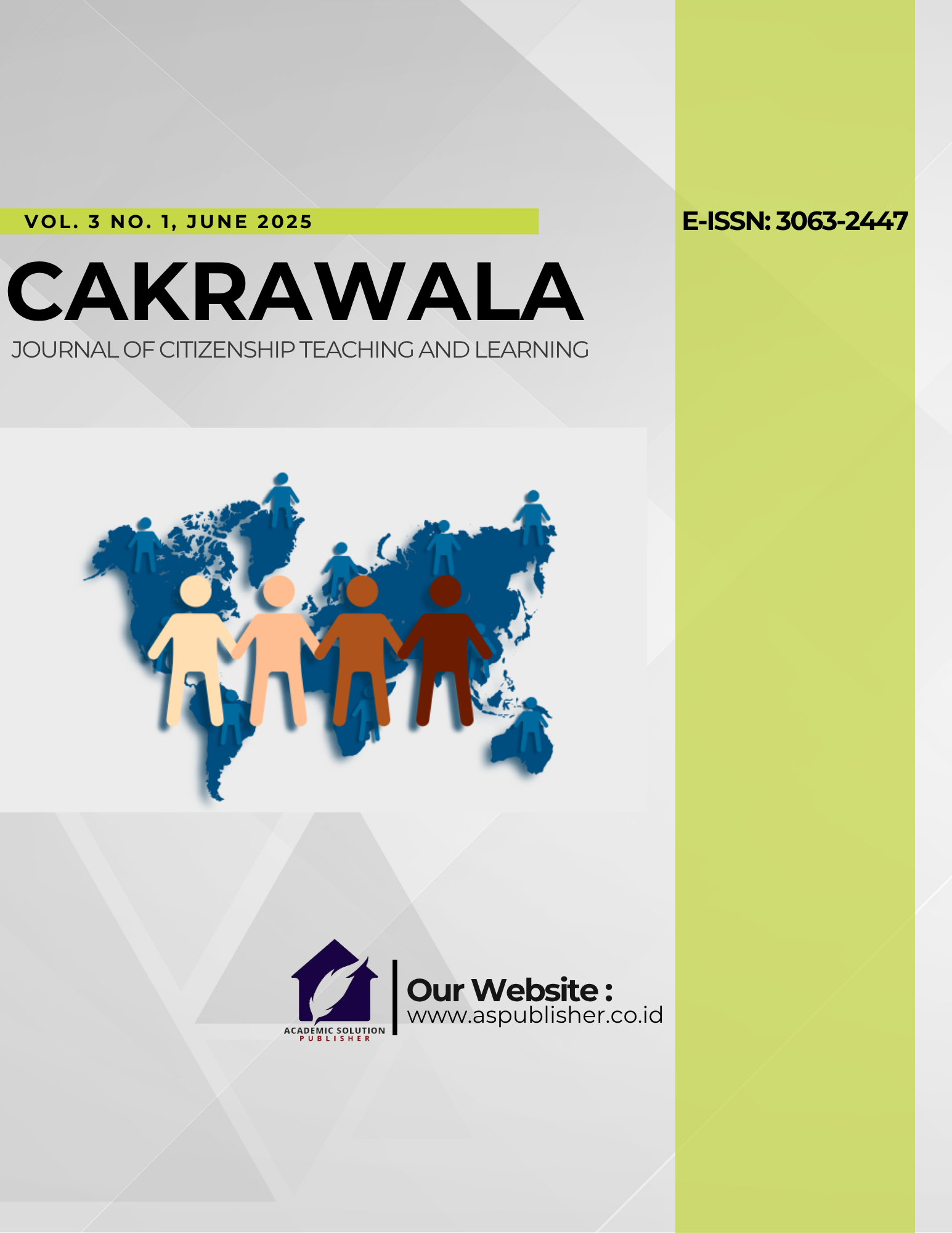Development and Implementation of Online Learning Based on E-Learning
DOI:
https://doi.org/10.70489/hshndp26Keywords:
Development of learning, Student engagement, teaching presence, higher educationAbstract
The development and transmission of learning today is needed to expand knowledge so that it can be easily obtained as well as online learning based on E-learning. This is useful so that interactions and learning are given to students by lecturers are easier. In the study entitled Development and implementation of online learning based on e- learning in Siyasah Departement of Faculty of Syariah dan Law UIN SU will be conducted to find out how the development of learning, strategies and supporting factors as well as inhibitors of the development of e-learning in Siyasah Departement of Faculty of Syariah dan Law UIN SU. The data collection technique is carried out by Observation, Interview, Document and Literature Study and the subject of this research are students and lecturers of Siyasah Departement of Faculty of Syariah dan Law UIN SU as much as 10% of the total number of students randomly. Consequently, only a limited number of professors have adopted e-learning within the Department of Sharia and Law at UIN SU, and overall, the implementation of an online learning-based e-learning system among lecturers is sparse. This study seeks to examine the facilitating and obstructive aspects in the advancement of e-learning.
References
Al-Samarraie, H., Shamsuddin, A., & Alzahrani, A. I. (2020). A flipped classroom model in higher education: a review of the evidence across disciplines. Educational Technology Research and Development, 68(3), 1017–1051. https://doi.org/10.1007/s11423-019-09718-8
Ali, M. M., Hariyati, T., Pratiwi, M. Y., & Afifah, S. (2022). Metodologi Penelitian Kuantitatif dan Penerapannya dalam Penelitian. Education Journal.2022, 2(2), 1–6.
Bambang Warsita, B. W. (2014). Landasan Teori Dan Teknologi Informasi Dalam Pengembangan Teknologi Pembelajaran. Jurnal Teknodik, XV, 84–96. https://doi.org/10.32550/teknodik.v0i0.91
Debby Adelita Febrianti Purnamasari. (2024). Analisis Perkembangan Kognitif Bahasa pada Anak Usia Dini Menurut Teori Jean Piaget dan Lev Vigotsky. Zuriah Jurnal Pendidikan Anak Usia Dini, 2(1), 23–31. https://doi.org/10.55210/w5q00836
Hajriyah, H. B. (2020). Modernisasi Pendidikan Agama Islam Di Era Revolusi Industri 4.0. MOMENTUM : Jurnal Sosial Dan Keagamaan, 9(1), 42–62. https://doi.org/10.29062/mmt.v9i1.64
Hanum, F., Rambe, B. H., Harahap, N. J., Prayoga, Y., & Pohan, M. Y. A. (2023). the Important Role of Adopting the Use of Technology in Universities After Covid-19: Application of the Technology Acceptance Model. Ecobisma (Jurnal Ekonomi, Bisnis Dan Manajemen), 10(1), 74–80. https://doi.org/10.36987/ecobi.v10i1.3887
Hutagalung, S. A., Murizal, I., Isnani, R., & Saragih, F. (2023). Productive Waqf : Solutions for Strengthening the Ummah ’ s Economy and Social Empowerment. 1(3), 10–17.
Istenič, A. (2021). Online learning under COVID-19: re-examining the prominence of video-based and text-based feedback. Educational Technology Research and Development, 69(1), 117–121. https://doi.org/10.1007/s11423-021-09955-w
Khechine, H., & Augier, M. (2019). Adoption of a social learning platform in higher education: An extended UTAUT model implementation. Proceedings of the Annual Hawaii International Conference on System Sciences, 2019-Janua, 53–62. https://doi.org/10.24251/hicss.2019.008
Kirana, N. C., Anggraeni, S., & Diana, S. (2021). Pengaruh penerapan community of inquiry menggunakan LINE terhadap keterampilan berpikir kreatif siswa SMA pada materi energi terbarukan. Assimilation: Indonesian Journal of Biology Education, 4(1), 24–31. https://doi.org/10.17509/aijbe.v4i1.34822
Meng, N., Dong, Y., Roehrs, D., & Luan, L. (2023). Tackle implementation challenges in project-based learning: a survey study of PBL e-learning platforms. Educational Technology Research and Development, 71(3), 1179–1207. https://doi.org/10.1007/s11423-023-10202-7
Putra, G. S., Maulana, I. I., Chayo, A. D., Haekal, M. I., & Syaharani, R. (2024). Pengukuran Efektivitas Platform E-Learning dalam Pembelajaran Teknik Informatika di Era Digital. Jurnal MENTARI: Manajemen, Pendidikan Dan Teknologi Informasi, 3(1), 19–29. https://doi.org/10.33050/mentari.v3i1.559
Saadati, Z., Zeki, C. P., & Vatankhah Barenji, R. (2023). On the development of blockchain-based learning management system as a metacognitive tool to support self-regulation learning in online higher education. Interactive Learning Environments, 31(5), 3148–3171. https://doi.org/10.1080/10494820.2021.1920429
Suartama, I. K. (2015). Strategi Pengembangan dan Pemanfaatan E-learning Dalam Proses Pembelajaran. Scientific Forum-Faculty of Education Departement of Science Education (FIP-JIP) and The International Seminar, 1(1), 719–728.
Sutrisno, S., & Lubis, A. H. (2022). A Survey on Online Computer Practicum during the COVID-19 Pandemic: Students’ Perceptions. International Journal of Research and Review, 9(9), 372–379. https://doi.org/10.52403/ijrr.20220942
Downloads
Published
Issue
Section
License

This work is licensed under a Creative Commons Attribution-ShareAlike 4.0 International License.










